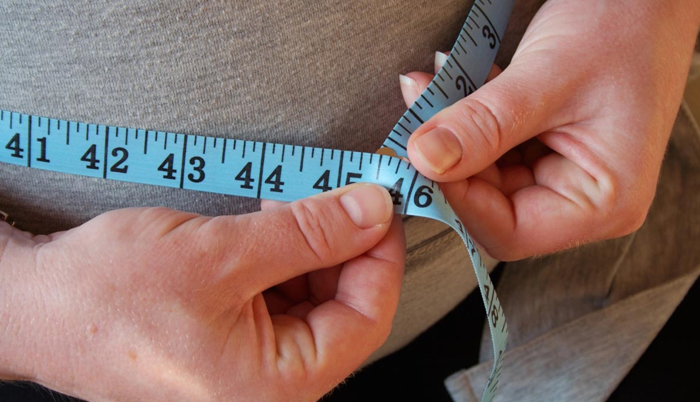![]() Home > Health
Home > Health
Middle-Age Metabolism Slowdown: Up Your Physical Activity To Avoid A Flabby Middle, Which Leads To Inflammation (The Root Of Many Chronic Conditions)

![]() October 12th, 2017 | 10:27 AM |
October 12th, 2017 | 10:27 AM | ![]() 578 views
578 views
NATURALNEWS.COM
Researchers from the University of Jyväskylä in Finland are studying the relationship between a person’s daily step count and changes in their body mass index (BMI). It was observed that those who had increased their daily step count by more than 2,000 steps had the same BMI level even after several years. Conversely, those who retained or decreased their daily step count had an increase in their BMI levels. Furthermore, the study concluded that men are more likely to have a sedentary lifestyle than women. The results found that men slowed down in exercising or doing physical activities as they aged.
The researchers studied the data of 1,033 Finnish adults ages 34 to 49. The data came from the Cardiovascular Risk in Young Finns Study in 2007 and 2011.
The subjects were divided into three groups according to their total number of steps — increase-ers, decrease-ers, and maintainers. The BMI of both male and female subjects grew over the follow-up time. About half of the subjects retained the same number of their daily steps, while roughly one-fourth increased their step count daily by more than 1,000 steps. Results showed that about 25 percent of the study subjects increased their daily step count by more than 2,000 steps, while about 19 percent decreased their daily step count throughout the four years of study.
In conclusion, the data indicated that increasing steps in middle age is linked with maintaining BMI at the same level. Researchers pointed out that physical activity should be raised as a person ages to maintain BMI at the same level. On the other hand, retaining the same level of physical activity increases BMI.
Battling middle-age metabolism
With regards to BMI levels, a Daily Mail article suggests a discovery by scientists that can help middle-aged people lose weight, or at least reduce the fat around the tummy area. The new research reveals that fat around the midsection of middle-aged people could be caused by inflammation. Researchers suggest that reducing this inflammation could increase metabolism and help middle-aged people lose fat around their belly area. (Related: Belly fat begone! Top 10 most insane ways to eliminate belly fat without diet or exercise.)
The study results indicate that metabolism slows down as people age, so losing weight is not as easy as how it was when one was younger. This consequently leads to the build-up of fat around the waistline. The researchers concentrated on macrophages, which are specialized cells engaged in destroying infections. They discovered a new variety of this cell that rests on the nerves in the tummy fat. When these specific types of macrophages become inflamed, they hinder the signals that are supposed to be sent to fat cells for them to burn the stored energy in the body.
This new study can contribute to the progress of discovering treatments to assist older adults avoiding a flabby middle. In the United States, about 36.5 percent of adults are obese. Obesity causes heart disease, stroke, type-2 diabetes, and certain types of cancer.
“The purpose of our research is to achieve a greater understanding of immune cell interactions with nerves and fat cells to potentially reduce belly fat, enhance metabolism, and improve performance in the elderly,” says study author Christina Camell.
The study was accomplished by the University of Tennessee Health Science Center, University of Bonn in Germany, and Yale University and was financed by the National Institutes of Health, the Glenn Foundation for Medical Research and the Cure Alzheimer’s Fund.
Source:
courtesy of NATURALNEWS
by Michelle Simmons
If you have any stories or news that you would like to share with the global online community, please feel free to share it with us by contacting us directly at [email protected]